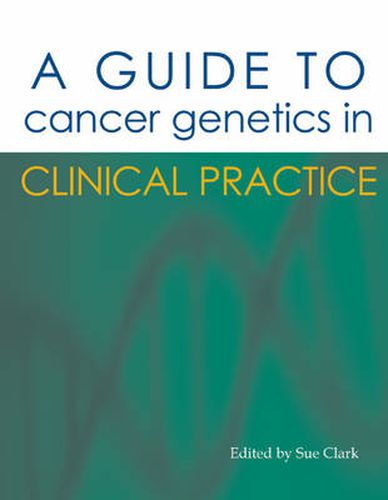Readings Newsletter
Become a Readings Member to make your shopping experience even easier.
Sign in or sign up for free!
You’re not far away from qualifying for FREE standard shipping within Australia
You’ve qualified for FREE standard shipping within Australia
The cart is loading…






Intensive research over the last fifteen years has yielded a vast expansion in our understanding of the role of inheritance and genetics in a variety of cancers. Several inherited conditions have been identified which result in a high risk of various cancers; some of these were previously recognised, but the genetic basis underlying them has now been elucidated. This knowledge is now entering the sphere of routine clinical care. Once the preserve of researchers and highly specialised units, genetic testing for cancer predisposition is now accessible to most clinicians via regional genetics units; in the USA patients can access commercial genetic testing facilities. There is a growing evidence base to guide family screening and clinical management of affected individuals. Surgeons, gastroenterologists, gynaecologists, oncologists, endocrinologists and many others need an awareness of these disorders, an understanding of genetic testing and when it is indicated, and how to manage patients with inherited cancer predisposition and their families. Testing for these conditions has potential legal, ethical and financial implications different from those which most clinicians regularly encounter, and continuing scientific and clinical advance means that patients and their doctors will face regular changes in management. This book covers the basic concepts of cancer genetics. The common inherited cancer syndromes are each dealt with in greater depth, with the current management outlined. This book is aimed at all clinicians who may encounter these conditions in their practice. It aims to facilitate identification of high-risk individuals and families, to inform interaction with geneticists and other sub-specialists, to provide a basis for patient management and to stimulate interest in these fascinating conditions.
$9.00 standard shipping within Australia
FREE standard shipping within Australia for orders over $100.00
Express & International shipping calculated at checkout
Intensive research over the last fifteen years has yielded a vast expansion in our understanding of the role of inheritance and genetics in a variety of cancers. Several inherited conditions have been identified which result in a high risk of various cancers; some of these were previously recognised, but the genetic basis underlying them has now been elucidated. This knowledge is now entering the sphere of routine clinical care. Once the preserve of researchers and highly specialised units, genetic testing for cancer predisposition is now accessible to most clinicians via regional genetics units; in the USA patients can access commercial genetic testing facilities. There is a growing evidence base to guide family screening and clinical management of affected individuals. Surgeons, gastroenterologists, gynaecologists, oncologists, endocrinologists and many others need an awareness of these disorders, an understanding of genetic testing and when it is indicated, and how to manage patients with inherited cancer predisposition and their families. Testing for these conditions has potential legal, ethical and financial implications different from those which most clinicians regularly encounter, and continuing scientific and clinical advance means that patients and their doctors will face regular changes in management. This book covers the basic concepts of cancer genetics. The common inherited cancer syndromes are each dealt with in greater depth, with the current management outlined. This book is aimed at all clinicians who may encounter these conditions in their practice. It aims to facilitate identification of high-risk individuals and families, to inform interaction with geneticists and other sub-specialists, to provide a basis for patient management and to stimulate interest in these fascinating conditions.